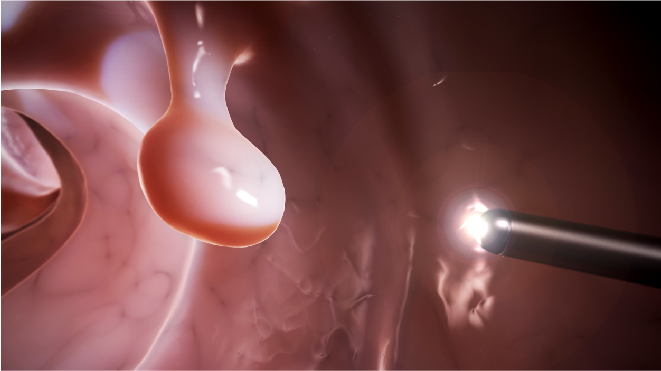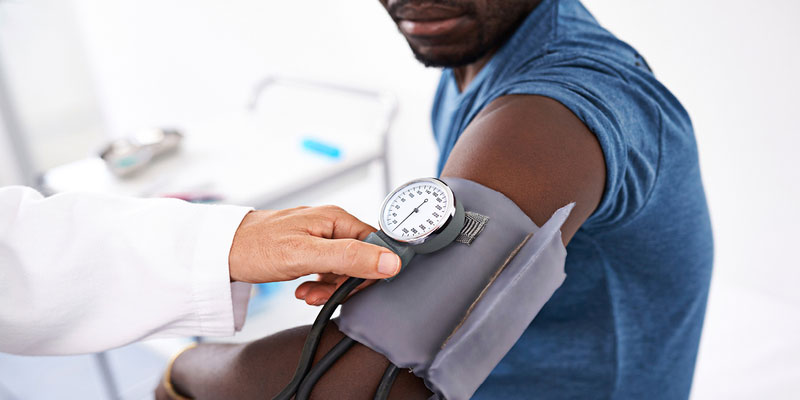Stage 3 colon cancer is the third stage of a progressive form of colorectal cancer and can be classified as either locally advanced or metastatic. During stage 3, the cancer has spread further than earlier stages and typically involves multiple lymph nodes. In some cases, it may have also spread to nearby organs such as the liver.
Despite this, local treatments such as surgery remain possible for some patients with Stage 3 colon cancer. It is essential for any patient diagnosed with Stage 3 colon cancer to have an in-depth discussion with their oncologist about what treatment options are best suited for them based on their diagnosis.
Understanding more about what to expect from this stage of colorectal can provide people with peace of mind and help inform decisions related to care planning.
In this blog post, we’ll break down everything you need to know about Stage 3 Colon Cancer, including risk factors, symptoms, diagnostics testing methods, treatment approaches available, and outlooks associated with prognosis.
Defining Stage 3 Colon Cancer
Stage 3 colon cancer is a form of colorectal cancer that has spread further than earlier stages from the primary site. It can be classified as locally advanced or metastatic, meaning it can involve multiple lymph nodes and nearby organs such as the liver. During Stage 3, surgery may still be an option for some patients, depending on how far the cancer has progressed.
A stage 3 colon cancer diagnosis requires an in-depth discussion with an oncologist to determine available treatment options. Generally, these treatments include chemotherapy and radiation therapy to kill off any remaining cells after surgery, if applicable. Some patients may also need additional medications that help prevent tumor growth or reduce side effects associated with treatment.
Treating Stage 0 Colon Cancer
Stage 0 colon cancer, also known as Carcinoma in Situ (CIS), is the earliest form of colorectal cancer that can be diagnosed. It occurs when abnormal cells are present on the surface of the inner lining of the colon or rectum but have not yet infiltrated deeper layers.
Treatment for stage 0 involves completely removing any affected tissue through endoscopic mucosal resection or local excision. In some cases, additional treatments such as chemotherapy or radiation may be recommended to reduce the chances of recurrence.
Stage 0 colon cancer is highly treatable and curable for most patients with surgery alone. Therefore, getting an accurate diagnosis and taking action as soon as possible is important.
Endoscopic mucosal resection involves removing only the affected tissue and is generally considered safe, with a low risk of complications or side effects. During local excision, your surgeon will remove part of the colon wall and surrounding lymph nodes to reduce the chances of recurrence.
Chemotherapy and radiation sometimes supplement traditional stage 0 colon cancer surgery techniques. This is typically done when previous treatments have not been successful or if there’s a high risk of recurrence. Chemotherapy helps kill off any remaining abnormal cells, while radiation therapy works by damaging their DNA so they can no longer replicate themselves.
Treating Stage I Colon Cancer
Stage I colon cancer is a form of colorectal cancer in which the tumor has grown from the inner lining of the colon or rectum into nearby tissue. Treatment for this stage typically involves surgically removing affected cells and organs and additional treatments such as chemotherapy or radiation therapy.
Surgery to remove the affected area is usually recommended for treating Stage I colon cancer. It can include partial removal of the larger part of the colon or rectum (colectomy) or full removal (proctocolectomy). Your surgeon will decide which treatment plan best suits your needs based on factors such as how far the tumor has spread, its size, and the overall health of your body.
Treating Stage II Colon Cancer
Stage II colon cancer is a form of colorectal cancer in which the tumor has spread through the wall of the colon or rectum but not into nearby organs. Treatment for this stage typically involves surgery and additional treatments such as chemotherapy and radiation therapy.
Surgery may involve removing part of the colon (partial colectomy) or full removal (colectomy). Radiation and chemotherapy can kill off any remaining abnormal cells and prevent recurrence. Your doctor will likely recommend one or more of these options based on factors such as how far the tumor has spread, its size, and the overall health of your body.
Treating Stage III Colon Cancer
Stage III colon cancer is a form of colorectal cancer in which the tumor has spread to nearby lymph nodes and organs. Treatment for this stage typically involves local treatments, such as surgery, and systemic treatments, such as chemotherapy or radiation therapy.
Surgery usually involves removing any affected part of the colon or rectum (colectomy) and some surrounding tissue (lymph node dissection). This helps remove all cancer cells and reduces the chances of recurrence.
Radiation therapy and chemotherapy can also kill off any remaining abnormal cells, reduce symptoms, and prevent further spreading. Your doctor will likely recommend one or more of these options based on factors such as how far the tumor has spread, its size, and the overall health of your body.
Overall, Stage III colon cancer is highly treatable with effective treatment options. It’s important to discuss your case with your doctor so they can recommend an accurate diagnosis and suitable treatments that best suit you. Patients have a good chance of fully recovering with early detection and treatment.
Symptoms of Stage 3 Colon Cancer
Stage 3 colon cancer is a form of colorectal cancer that has spread further than earlier stages and can involve multiple lymph nodes and nearby organs such as the liver. It’s important to be aware of any signs or symptoms that may indicate Stage 3 colon cancer so you can get an accurate diagnosis and start treatment as soon as possible.
1. Abdominal pain or tenderness
Pain in the lower left side of the abdomen is common with Stage 3 colon cancer but can spread to other areas.
2. Changes in bowel movement
Diarrhea, constipation, or changes in bowel habits are all potential signs of colorectal cancer.
3. Rectal bleeding
Blood may appear on toilet paper or in the stool and can be a sign of early-stage cancer.
4. Fatigue
Unusual fatigue or exhaustion that doesn’t go away with rest can indicate advanced stages of cancer.
5. Unexplained weight loss
Significant weight loss without dieting or any known cause should be discussed with a doctor.
6. Anemia
Low levels of red blood cells can indicate advanced stages of cancer.
7. Nausea and vomiting
These symptoms may be caused by a tumor blocking the digestive system or other complications.
8. Loss of appetite
Loss of appetite or feeling full quickly are symptoms that should not be ignored.
9. Abdominal swelling
A mass in the abdomen or unexplained abdominal swelling could indicate a tumor in the colon or rectum.
FAQs
What is the survival rate for Stage 3 colon cancer?
The 5-year survival rate for Stage 3 colon cancer is 59%. However, this can vary depending on the individual and their health. Discussing your particular case with a doctor for accurate information is important.
Are there any alternative treatments available for Stage 3 colon cancer?
Alternative treatments such as acupuncture, herbal medicines, and dietary supplements may be beneficial in treating Stage 3 colon cancer symptoms. However, talking to your doctor before taking any supplement or treatment is important.
How bad is Stage 3 cancer?
Stage 3 cancer is considered advanced and has spread further than earlier stages. It’s important to get an accurate diagnosis and start treatment as soon as possible for the best chance of recovery.
Conclusion
Stage 3 colon cancer is an advanced form of colorectal cancer that has spread further than earlier. Treatment usually involves surgery to remove any affected cells/organs and additional treatments such as chemotherapy or radiation therapy. Knowing any signs or symptoms of Stage 3 colon cancer is important to get an accurate diagnosis and start treatment as soon as possible.






